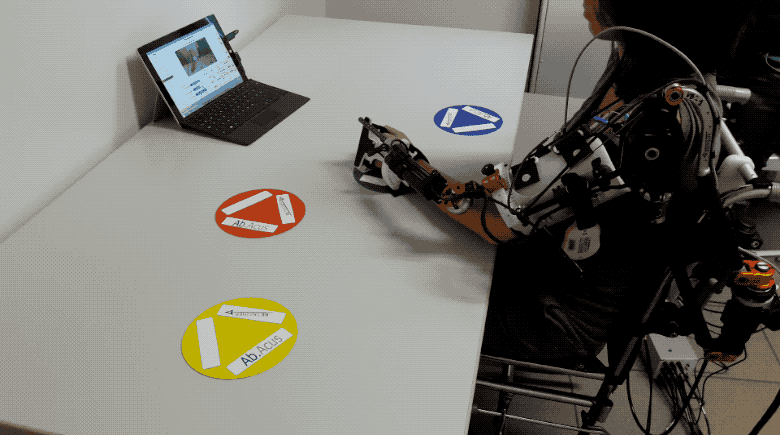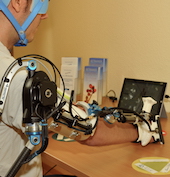
This work describes a hybrid robotic system for arm recovery after stroke, combining EMG-triggered Functional Electrical Stimulation (FES) with a passive exoskeleton for upper limb suspension. The system was developed within the European project RETRAINER and was used in a structured exercise program resembling activities of daily life. Exercises execution was continuously controlled using angle sensor data and Radio-Frequency IDentification (RFID) technology. The training program consisted of 27 sessions lasting 30 minutes each. Seven post-acute stroke patients were recruited from two clinical sites (one in Italy and one in Germany). The efficacy of the system was evaluated in terms of Action Research Arm Test, Motricity Index, Motor Activity Log, and Box & Blocks tests. Furthermore, kinematics-based and EMG-based outcome measures were derived directly from data collected daily during the training sessions. At the end of the training program, all patients showed improved motor functions and, in most cases, were able to perform the exercises faster, smoother and with a wider range of motion. Subjects were able to trigger FES, but in some cases, they did not maintain the voluntary effort during task execution. All subjects but one considered the system usable. Overall, the RETRAINER system is highly customizable, allows to monitor the daily performance and requires low supervision of the therapist. The preliminary results here presented show that the RETRAINER system can be used in a clinical environment with positive effects on arm functional recovery. Currently, a multi-center randomized controlled study recruiting 68 stroke survivors is ongoing to evaluate the efficacy of the RETRAINER system with respect to conventional therapy.

